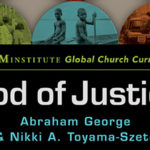American Restoration: How Faith, Family, and Personal Sacrifice Can Heal Our Nation
Tim Goeglein and Craig Osten (Gateway)
There is a growing concern among Americans of various political views that our nation’s best days are behind us and that we are too divided and disheartened as a people to turn things around. In response, many thoughtful people have recently weighed in with their own diagnosis and prescription for action. To those voices, add this helpful new book by prominent evangelical leaders Tim Goeglein and Craig Osten.
 From the beginning, the authors make their point of view clear by quoting the late Chuck Colson, who famously said Christians should keep in mind that “salvation won’t come from Air Force One.” This belief that the answers we need won’t come from government is a theme throughout the book. Instead of looking in that direction, the authors shift the focus to what they see as a more fundamental question: How can we restore a robust civil society rooted in the common good?
From the beginning, the authors make their point of view clear by quoting the late Chuck Colson, who famously said Christians should keep in mind that “salvation won’t come from Air Force One.” This belief that the answers we need won’t come from government is a theme throughout the book. Instead of looking in that direction, the authors shift the focus to what they see as a more fundamental question: How can we restore a robust civil society rooted in the common good?
For Goeglein and Osten, the answer is found in their faith and the core moral principles of the Judeo-Christian tradition. Time and again, the authors remind Christians we already have the solutions to our country’s problems, and what we need to do is simply apply them in our spheres of influence.
In particular, Goeglein and Osten put front and center the concept of imago Dei, the belief that we are all made in the image of God. They see this principle in America’s founding documents and point to it as an example of how important this and other Christian teachings are to the moral foundation of the nation. The authors argue that if America is to have a restoration, it must start with a “moral awakening” based on this understanding of the sacredness of all life.
After asserting faith is the key to healing our country, the authors describe the problems that exist in many different aspects of American life—including religious liberty, politics, culture, education, citizenship, civility, and marriage and the family. The chapters on each of these and other topics offer a diagnosis of the problem and some suggestions of what needs to be done. Some chapters are a little thin on specific suggestions for action, but all make a strong call for the reader to get involved and take responsibility for making a difference.
One of the strongest chapters in the book looks at the deep divisions in the country and the incivility rampant in our political discussions. The authors cite alarming statistics about the increasingly hostile views Democrats and Republicans have of each other and point out how this type of thinking can lead us to dehumanize those we disagree with. They do an excellent job of providing a balanced view of this problem and make it clear that people on both the left and right express disdain for each other and engage in hateful rhetoric. Once again, they see the solution in the application of Christian values and argue that if enough people “extend grace to those with whom we disagree,” then we can change the tone of political discussions in our country.
Some Christians who are not as conservative as Goeglein and Osten will differ from them on some of what they say about the role of government and the positions they take on specific issues. At the same time, there is much common ground Christians of all political views can find in this book. The authors’ emphasis on the need for moral renewal and the assertion that the teachings of Jesus should direct our actions in public life will resonate with liberal Protestants and Catholics, as well as evangelicals.
Finding agreement on exactly how to apply these basic principles on controversial issues is a difficult task for Christians of different views, but this book reminds us it also is an important one. If there is to be moral renewal in America, then people of faith from different political parties must find ways to work together more effectively than they do now. As the authors tell us, “The seeds of American regeneration are ready for sowing if only we have the national will.”
Theo Brown, director of faith-based programs
Sign up for our weekly edition and get all our headlines in your inbox on Thursdays
The National Institute for Civil Discourse















We seek to connect God’s story and God’s people around the world. To learn more about God’s story, click here.
Send comments and feedback to Eric Black, our editor. For comments to be published, please specify “letter to the editor.” Maximum length for publication is 300 words.